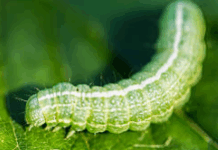Organic matter improves virtually any soil type you have. Clay dominated soil, sandy soil, organic matter improves it all. The result will be a better environment for almost any kind of plant.
Many problems with home vegetable gardens, fruit trees, shrubs, and flower gardens are caused not by pests, diseases, or a lack of nutrients, but by poor soil physical conditions.
Symptoms of poor soil quality include the following.
• The soil is dried and cracked in summer.
• Digging holes in the soil is difficult, whether it is wet or dry.
• Shrub plants wilt in hot weather, even with added water.
• Leaves on shrubs turn yellow and have brown, dead sections on them, particularly on the south side of the plant.
• Tomatoes and peppers get blossom-end rot, even if fertilized with calcium.
• Water tends to pool on the soil surface and to drain slowly, or it runs off the surface
Benefits of adding organic matter to soil:
Adding organic matter reduces soil compaction created by walking, pet traffic or vehicle traffic and construction on the soil.
One of the most important reasons for adding organic matter is to improve the ability of the soil to absorb and store water. Amending your soil may mean that you can reduce the amount of water a newly planted garden requires. This effect can be enhanced by the use of an organic mulch on the soil surface, which will reduce evaporation as compared to bare soil.
Adding organic matter also increases the activity and number of soil organisms. Over time, a well-amended soil will supply more of the nutrients your plants require, which will reduce fertilizer requirements.
Although you might not expect it, adding organic matter to soil also helps to protect water quality and the environment. Soil amended with organic matter are a better sponge for water. More water goes into the soil, and less water runs off the surface. Because surface runoff is reduced, pesticides and fertilizers are retained in the soil instead of washing into nearby rivers and lakes.
Compostable material includes:
• Yard trimmings compost
• Leaves from deciduous trees
• Crop residues
• Manures and manure composts
• Kitchen wastes





